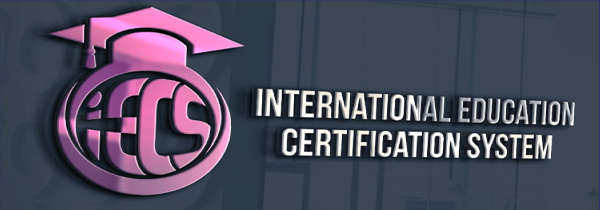Introduction: Understanding ISO 17100 Certification
In today’s competitive translation industry, ensuring high-quality service and maintaining client trust are essential. One of the best ways to achieve this is by obtaining ISO 17100 Certification, the gold standard for translation companies. ISO 17100 certification not only assures clients of top-quality services but also enhances the credibility of translation companies in the global marketplace. For translation companies, this certification is more than just a mark of approval it’s a commitment to excellence, ensuring that the entire translation process is carried out to the highest standards.
This blog post breaks down the importance of ISO 17100 Certification, explaining how it ensures quality, credibility, and industry leadership, and why it should be a top priority for any translation company.
What is ISO 17100 Certification?
ISO 17100 is an international standard specifically created for translation services. It provides a framework for ensuring that all aspects of the translation process meet the highest professional standards. The certification covers everything from the qualifications of linguists to the management of translation projects and quality assurance procedures.
For translation companies, obtaining ISO 17100 certification demonstrates that they meet rigorous quality management processes, ensuring that they provide reliable and professional translation services.
This certification goes beyond just language fluency. It ensures that translation companies adhere to specific guidelines that govern how projects are handled, from initial client request to the final delivery. The requirements cover key areas such as:
- Linguists Qualifications: Translators must have the necessary qualifications and experience.
- Project Management: Companies need to have clear processes for managing translation projects efficiently.
- Quality Assurance: There must be a system in place to ensure that all translations are thoroughly reviewed and meet the required standards.
Why is ISO 17100 Certification Important?
1. Guaranteed Quality Control
One of the core aspects of ISO 17100 Certification is its focus on quality control. When a translation company is ISO certified, it follows a highly detailed set of procedures that guarantee the accuracy and professionalism of the translation work. The certification ensures that every aspect of the translation process starting from the initial request through to the final proofread is done to a high standard.
With a strong emphasis on quality, ISO 17100 guarantees that the linguists have the necessary expertise, the projects are well-managed, and the final products are reviewed meticulously for accuracy and consistency. By adhering to these guidelines, translation companies are able to consistently deliver high-quality translations to their clients, regardless of the project’s size or complexity.
2. Increased Credibility and Trust
ISO 17100 certification provides translation companies with a level of credibility that sets them apart from their competitors. Clients know that companies that have achieved this certification are committed to quality and have passed a rigorous evaluation.
For clients in specialized industries such as legal, medical, and technical sectors, the stakes are particularly high. In these fields, translation errors can lead to costly mistakes or even legal consequences. By choosing an ISO-certified company, clients are assured that the linguists are not only linguistically skilled but also subject matter experts who can accurately translate highly technical documents.
Additionally, this certification reassures potential clients that the company adheres to internationally recognized best practices, which can give them confidence in their choice of service provider.
3. Global Competitiveness and Market Reach
In an increasingly globalized world, companies need translation services that can handle diverse requirements while maintaining high quality. With ISO 17100 certification, translation companies can better compete in the global market. The certification acts as proof that a company’s translation processes meet international standards, making it easier to attract international clients.
For businesses looking to expand their global reach, working with ISO 17100-certified translation companies ensures that all their content is translated accurately and professionally, in line with the needs of local markets.
How Does ISO 17100 Certification Ensure Consistent Industry Leadership?
1. Enhanced Project Management
ISO 17100 certification is not just about translation quality; it also focuses on improving project management processes. By complying with ISO 17100 guidelines, translation companies establish a clear and efficient process for managing each translation project. This includes:
- Project Scoping: Properly defining the scope and objectives of the project.
- Timelines: Ensuring projects are completed within the set deadlines.
- Budget Management: Managing translation costs while maintaining quality standards.
A well-managed project is more likely to be completed successfully, on time, and within budget, which strengthens the company’s reputation for reliability. By following these best practices, certified companies also minimize the risk of errors and miscommunication.
2. Specialized Expertise and Experience
One of the primary requirements of ISO 17100 certification is the use of qualified professionals for translation. Translation companies that are certified must hire experienced linguists who not only understand the language but also possess specialized knowledge in fields such as law, medicine, or technology.
For instance, a legal translation requires more than just fluency in two languages—it demands an in-depth understanding of legal terminology, court procedures, and local laws. ISO 17100 ensures that only linguists with the appropriate background are assigned to specialized tasks, guaranteeing that the translation is both linguistically accurate and contextually relevant.
3. Commitment to Continuous Improvement
ISO 17100 certification is not a one-time achievement but a commitment to continuous improvement. To retain the certification, companies must undergo regular audits and evaluations. These audits assess the effectiveness of the company’s quality management systems and ensure that they are adapting to new challenges, technologies, and client needs.
This focus on continuous improvement ensures that certified companies stay ahead of industry trends and continue to meet the highest standards. By regularly evaluating and enhancing their processes, they remain at the forefront of the translation industry, offering innovative solutions to meet the evolving needs of their clients.
ISO 17100 and Your Business: Why It Matters
For companies and individuals who rely on accurate translations—whether for legal contracts, medical documents, or technical manuals working with an ISO 17100-certified translation company offers invaluable benefits. It guarantees the highest level of translation quality, accuracy, and professionalism, ensuring that the final product meets your specific needs.
Partnering with ISO 17100-certified companies can also help businesses expand their international footprint. As your company grows, ensuring that your global communication is seamless and accurate becomes crucial. ISO certification provides the peace of mind that your translated content will meet international standards, allowing you to confidently reach global markets.
Get access to e-learning resources:
- Explore our e-workshops here! – Dive deep into essential topics to enhance your skills.
- Join our e-coaching sessions for personalized learning – Get one-on-one coaching from experts.
- Access insightful e-books to enhance your learning – Learn from well-curated resources.
Special Offer: First-time customers can enjoy a 50% discount on their first order! Simply email us at support@iqc-vienna.com to claim your offer.
Don’t forget to subscribe to our newsletter for the latest updates and exclusive offers!





Leave A Comment
You must be logged in to post a comment.